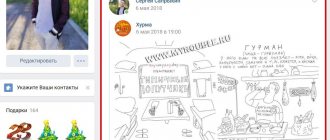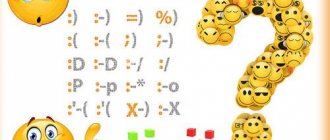The language of online communities is a specific and sometimes extravagant phenomenon. Heated discussions of topics on social networks, heated discussions on forums are full of jargon that baffle casual website visitors. Regulars of VKontakte, Facebook and other communication platforms strive to express their thoughts briefly, richly and emotionally. That’s why slang words slip into their messages.
Some jargons, such as IMHO, have become commonplace. Others have just come into use. This refers to the word "kek". "What does it mean? Is kek an insult or an approval?” – a person uninitiated in the intricacies of modern Internet language will ask at the sight of an incomprehensible word. Let's figure it out. Otherwise, awkward situations, absurd incidents and conflicts cannot be avoided.
What is kek?
Kek is used mainly by young people on social networks, thematic Internet communities and in the gaming environment. In a broad sense, this word means “laughter”, and it always has a negative connotation. Depending on the situation, kek can be interpreted in different ways: light mockery, malicious grin, sarcasm, irony, neglect, contempt, mockery and even outright insult. This is what the word “kek” means in youth slang. This jargon conveys a wide range of feelings, but is not always a form of direct aggression. Situations are different. And its shades change depending on the occasion.
Origin of the word KEK:
The expression KEK came to us from computer games. Initially, something similar appeared in the game Starcraft, which is very popular all over the world, and especially in the Republic of Korea.
Players wanted to imitate evil laughter in in-game correspondence and sent messages "Kekeke" (parodying the sounds of creaking, choking laughter). The roots of this relate specifically to Korean culture, where they use the onomatopoeic phrase “ㅋㅋㅋ” (ㅋ conveys the sound “k”), but since Korean characters could not be written in the game, they used “Kekeke”.
A little later, in another computer game, World of Warcraft, the phrase KEK became directly related to the expression “lol.” There are two opposing sides in this game - the Alliance and the Horde. When playing as one of them, you cannot communicate directly with the enemy. For example, if a Horde player writes some phrase, then the Alliance player will display it with an incomprehensible set of characters. Players have noticed that if you write the mentioned expression “lol”, then for the enemy it will be converted into “kek”. This coincidence led to the fact that “kek” began to be used instead of “lol,” especially when they wanted to give this “laughter” a hint of ridicule.
Kek: instead of a thousand words
Interlocutors can discuss their enemies and their actions in personal correspondence, sending each other the word “kek” in messages. They thereby demonstrate unity of opinion or give a general assessment of the situation. Kek is the answer to a stupid question or an unpleasant, ridiculous proposal. It instantly stops further discussion, but can lead to conflict.
Kek is an open insult to the person who is trolling. This word can act not only as an interjection, but also as a noun or adjective. In such a case, it can be interpreted as a swear word: “Well, you are a kek (keknuty)!” You ask: “What does this mean?” Kek in this case will be synonymous with the word “loser”. These are the main uses of the new jargon.
What is this?
Over time, it turned out that it was impossible to give a single definition of the word “kek”. Not everyone can answer what it means. Even those who use it do not always understand the meaning. To generally understand what it is, you need to determine in what context it is used.
Most often, such phrases sound ridicule, mockery, sarcasm - this is exactly what the word “kek” means. If a person is told that he is a kek, it means that he is in a stupid or funny position. In principle, this term is not offensive. It only emphasizes the funny situation in which the interlocutor finds himself.
LOL and kek: similarities and differences
The word "kek" has synonyms. Among them is the acronym LOL. Despite the fact that both jargons express laughter, they are not always identical. It is necessary to be able to distinguish them. Otherwise, the Internet user can expect quite a major embarrassment. It all depends on what you mean lol. And cake cannot always replace it. LOL extremely rarely carries negative emotions. The acronym stands for laughing out loud, which means “dying from laughter.”
LOL is a burst of laughter. A sign that the joke was a success. This is a kind of compliment to the interlocutor’s sense of humor. Uncontrollable, almost hysterical laughter - that's what lol means. Kek can become its full synonym only in exceptional cases. For example, when a person, not understanding the meaning of an acronym, uses it as an insult. Such incidents occur rarely and are considered a mistake. The snide cousin of the Internet meme LOL is not used in a purely positive sense. This is due to its origin.
Use and modification
Other games also influenced the spread of the word kek. For example, one of them is the famous Warcraft . The fact is that when a player who chose an orc as a character wrote the word “lol” to a representative of the Alliance, it was displayed to him as kek.
There is another reason for the rapid spread of this word. Hand in hand with the use of lol goes the word lulz, LUL or LULZ in Russian. If you write it with a changed layout, you will get kek again. This once again contributed to the fact that the word took root, because Punto Switcher often intervened in the matter.
For many, the words kek and lol are absolute synonyms and have no particular differences in use, except that the first has a slightly weaker emotional connotation . However, like any slang expressions, they do not (simply cannot have) any clear rules and exceptions to them. Thus, young people have the right to use this word as they please and express any type of laughter, including a kind of sad smile, personifying hopelessness and resignation to it.
Where did the word “kek” come from on the RuNet?
Kek is originally from Korea. The word appeared there more than ten years ago. It was first used in chats by fans of the Korean online game StarCraft. Participants in space duels exchanged messages among themselves. Captivated by excitement and thirst for victory, the players tried to tease each other, prick each other and show their superiority. And the word “kek” helped them with this. At the right moment, with its help, they gloated about the defeat of their opponent, grinned maliciously when their victory became obvious, and also expressed other aggressive emotions.
In this context, an interesting question is: how is the word “kek” translated? The answer to this lies in the special Korean laughter. Its sound can be indicated in writing by the word kekeke. It moved into the gaming environment in the abbreviated form kek. The word quickly caught on among gamers. And when the StarCraft game became popular abroad, it quickly came into use among foreigners. Years later, Korean slang fluttered out of the gaming space and became part of the everyday communication of regulars on social networks on the RuNet.
Origin of the word KEK:
The expression KEK came to us from computer games. Initially, something similar appeared in the game Starcraft, which is very popular all over the world, and especially in the Republic of Korea.
Players wanted to imitate evil laughter in in-game correspondence and sent messages "Kekeke" (parodying the sounds of creaking, choking laughter). The roots of this relate specifically to Korean culture, where they use the onomatopoeic phrase “ㅋㅋㅋ” (ㅋ conveys the sound “k”), but since Korean characters could not be written in the game, they used “Kekeke”.
A little later, in another computer game, World of Warcraft, the phrase KEK became directly related to the expression “lol.” There are two opposing sides in this game - the Alliance and the Horde. When playing as one of them, you cannot communicate directly with the enemy. For example, if a Horde player writes some phrase, then the Alliance player will display it with an incomprehensible set of characters. Players have noticed that if you write the mentioned expression “lol”, then for the enemy it will be converted into “kek”. This coincidence led to the fact that “kek” began to be used instead of “lol,” especially when they wanted to give this “laughter” a hint of ridicule.
Funny coincidences: kek and lulz
Resourceful fans of Internet slang have found an interesting coincidence. If you type “kek” in Latin on the keyboard without first switching it to English, the letter combination “lul” will appear on the computer screen. Observant Internet dwellers immediately drew an analogy with the word lulz. Translated from English it means a grin. And according to The New-York Times, he even expresses joy at disturbing someone else’s peace. What does it mean? "Kek" - a word that came from English? Of course not. It's just a coincidence. However, it caused an emotional reaction among users. Such associations are known to contribute to the memorization of new words. Perhaps this is why slangism has taken root in Runet.
What is this in youth slang?
So, everything is clear with the meaning of the word “kek” - most often it expresses ridicule of a person or situation. But where did it come from and why did it become so popular among young people? It turns out that the history of the origin of this word is not so simple.
Initially, the word appeared thanks to fans of the online game StarCraft, namely its Asian participants. It was used as a shortening of the expression "Kekeke", meaning laughter, and was also similar to a short laugh "heh". Gradually, the word migrated first to representatives of other nationalities playing StarCraft, and then went further - to other network games, various social networks and instant messengers.
Many people associate the appearance of this word with Shrek, the character of the animated film of the same name. This phenomenon, again, is associated with online games. So, in the game "WarCraft" there are different races that you can play for. There is also a racial filter, thanks to which those playing as the orc race write the word “lol”, and for Alliance supporters it is displayed as “kek”.
This is how Shrek got the nickname “Kek” - after all, this character is a representative of the “nationality” of orcs. Fun fact: If you type “cake” into your browser’s search bar, an image search will return many images of Shrek.
There is another version of how this word entered the vocabulary of young inhabitants of the Internet. If you type “kek” in Latin, when you change the layout, the word will be converted to “lul”, which is consonant with the English “lulz” (lulz). The latter stands for “joke”, “hochma”, and again with a negative connotation - a stupid or evil joke, ridicule. This coincidence could well have helped the word spread across the Internet.
A malicious grin and activated sludge: what could they have in common?
The newfangled word means more than just malicious laughter. Online dictionaries interpret it differently. According to them, cake is activated sludge. This substance does not look very attractive in real life, to put it mildly. The brown watery mass evokes unambiguous associations. Vivid images, especially disgusting and disgusting ones, remain in a person’s memory for a long time. In fact, activated sludge and a malicious grin do not have a center of contact. However, they have the same name - kek. Therefore, now people are putting even more negativity and contempt into this slang.
Where is Kek used?
Usually this phrase is used, as mentioned above, in order to express one's disapproval of a bad joke, or to maliciously reinforce one's message with various cunning plans and thoughts.
However, it is not always used this way - and now kek serves as a universal answer to good humor or a funny picture.
In any case, this word has become part of Internet slang, and is now constantly changing in its meaning, expanding the area of its use. At the moment, most often it can be found in the Russian-language segment of the World Wide Web.
In general, this is all that can be said about this phrase. It is almost exactly the same as the word "lol", so feel free to use it instead of this expression.
Which option do you like best?
Kek and Shrek - an unusual association
Quite friendly images are also associated with the word “kek”. This is the name of the famous cartoon character Shrek. The emergence of this rather strange association is associated with the game World of Warcraft. There has been a war going on online for many years now between the orc faction and the Alliance, and the enemy parties are constantly corresponding. One day during the game, an unusual story happened with messages. The acronym LOL, which the orcs sent to the Alliance, was displayed by the chat filter as a cake. No one immediately understood what this meant. Keck aroused first bewilderment, then interest.
Players began to actively use the new word. However, it was always associated with orcs. On the Internet, the word is firmly stuck to Shrek. Many users view this association with indignation. After all, everyone knows that Shrek is an ogre. However, do not forget that these creatures almost always end up on the side of the orcs in the world of World of Warcraft.
This concludes our brief excursion into the history and etymology of the word “kek”. Now you don’t have to be afraid of misunderstandings, awkward pauses and embarrassments. Enjoy your time on the World Wide Web, dear users!
What does the mysterious Kek mean?
The combination of three letters Kek begs to be compared with the abbreviation LOL. And there really are similarities. Kek is the same laughter, only enhanced by the negative attitude of the laugher. Imagine that you are laughing at your friend's failure and at how your enemy has stumbled. Agree, the laughter in the two cases will be different. So, if your friend fell, then it is better to comment on this with the acronym Lol, and if a person is unpleasant to you, with the slang expression Kek.
Also, don't forget to call Shrek by his true name at least a couple of times. This will show that you really understand the online vocabulary. As far as memes go, the best image to describe Kek is:
Now you know what Kek is. Knowledge is worthless if you don’t use it, so today leave 5 relevant comments using the described slang. Good luck!
Previous article: Content Defender Review Next article: How to remove Chinese antivirus Blue Shield with a check mark
“Lol, kek, cheburek”... Slang, or How to understand what Slutsk youth are talking about
Each generation has its own words that people actively use; linguists call them “slang”. “Kur'er” has collected several popular expressions that Slutsk youth use in colloquial speech. And the linguist explained to Kur'er how and why such words appear and whether it is necessary to fight them.
Anton Somin, born in Minsk, is now a researcher at the Institute of Linguistics of the Russian State University for the Humanities
— What is the difference between slang, vernacular and jargon?
— These terms mean approximately the same thing and are often used as synonyms. But the vernacular stands out - call, catalog - this is the speech of uneducated people. Slang and jargon can also be used by educated people.
—Where does slang come from?
- He has different sources. Most often these are borrowings, primarily from English: “hi” as a greeting, “sori” as an apology, “bow” as an appearance. This was especially evident in the 70s and 80s in hippie slang: “people” - people, “hair” - hair, etc.
There are borrowings from other slangs and jargons, for example, from criminal or prison jargon. The words that came in the early 90s - “arrow”, “run over”, “present” - are from the jargon of criminals. Or the now popular “zashkvar” (something shameful) is also from criminal jargon.
Something appears as a new additional meaning of an already existing word: “ancestors” - parents, “fire” - excellent. Or with the help of suffixes and prefixes - in addition to just “sorry” there are variants “soryan”, “weed”, “weed”.
— Why do teenagers love to replace familiar words with slang ones? Is this an attempt to stand out or simplify?
— There is no talk of simplification. Saying “ancestors” instead of “parents” or “eeee, rock” instead of “cool” is no easier. But indeed, young people always try to be different from adults: this manifests itself in clothes, hobbies, musical tastes and, of course, in language. Therefore, replacing some words with others is a natural attempt to distance oneself, a way to distance oneself and distinguish oneself from the previous generation, as well as self-expression through language.
Developing slang is the easiest way to distinguish “one’s own” from “another’s”: one’s own knows how to answer and what word to use, but the other’s does not know. Sometimes, when adults try to imitate youth slang, it turns out awkwardly, because adults do not know how and when to use this or that word correctly.
In some cases, a new word denotes a new concept: say, “hype” is not just something popular. It’s also hype, excitement around something. You can “hype something” - that is, throw some statement into the media environment that will be discussed by everyone. You can “hype” - promote, increase the popularity of something. There is simply no word in ordinary language that covers all these meanings, so slang words appear to fill the empty space.
— How long does the slang of one generation live?
— Modern memes that come from videos on the Internet last six months at most, many even less. Individual elements of youth slang - from several years to a decade.
The slang of “bastards,” which in the mid-2000s seemed undying and something that would destroy the Russian language, had already safely sunk into oblivion by the beginning of the 2010s.
People grow up and retain words from their youth in their memory, although they do not use them. If you ask a 40-year-old man, he will name the words “cute”, “stunning”, “amazing”. Yes, in the 90s they were at the height of fashion, but now they seem terribly outdated.
But there are also long-lived words. For example, the word “cool,” which seems to be youth slang from the 90s, actually originated in the mid-19th century and is used today.
Photo: Ales Dostanko
— They say that modern schoolchildren destroy language norms with slang. Is it dangerous for the tongue?
— Slang is not literary speech, but colloquial speech, and in colloquial speech there are no norms. These are simply two different levels of language.
As people grow up, they stop using these words, and young people start using new ones instead. That’s why youth slang lives on the periphery of the language. If something from it ends up in the common spoken language, then I would call it language enrichment. This way we get the opportunity to express some additional shades. This does not have a significant impact on the literary language.
In the Old Russian language there was a word “oko”, which at some point was replaced by the word “eye”. The word "eye" meant "ball, pebble." But people, apparently, began to call eyes eyes so often in colloquial speech (as in the modern “roll out the balls”) that it remained in the language, replaced “eye” - and has not surprised anyone for half a millennium.
This can happen with some modern slang word, and in a hundred years, for example, it will displace something familiar to us.
— Can Slutsk youth understand their peers in Moscow?
— Yes, Russian-language slang is universal. Although there are some differences. For example, in Belarus, calling someone on a cell phone and hanging up the call so that they call you back was called “throwing a wood grouse,” but in Moscow no one said that. Or, for example, 3G modems in Belarus were called “trijiks”, but outside its borders there was no such word. In Minsk in the 90s, schoolchildren said “debeze” as an abbreviation for “dobazari” (agreed) - this did not happen in Russia.
These examples are exceptions, and the slang is more or less uniform.
— What influenced the formation of slang in the 1990s, 2000s and now?
— Nowadays a lot comes from the Internet. When you study youth slang, especially the jargon of schoolchildren, it is often unclear: this word came from the Internet and ended up in the jargon of schoolchildren, or vice versa.
For some words, it is clear that these were originally Internet memes, and schoolchildren were the first to grab the new buzzword. For example, the word “kek” as a designation of something funny first appeared on the Internet, but for several years it became a striking feature of schoolchildren’s speech, annoying their elders. Now it is happily extinct.
In the 1990s, there was no environment for new words to spread quickly, so buzzwords appeared less frequently but lived longer.
Photo: Ales Dostanko
Dictionary
Kur'era journalists collected these words while communicating with Slutsk schoolchildren and college students. They also gave interpretations of the words.
- Bayan is an old, ancient, hackneyed joke, meme, anecdote (already an outdated word).
- Vpiska is a party at someone’s house (in an apartment, house), most often with an overnight stay. Initially, just housing where you can stay temporarily.
- Cut yourself out - leave, quit the game, leave a room, a party, or “cut yourself out of life.”
- Go - let's go, come on, call to action. From English to go - to go. “Go outside”, “go take a photo”.
- Zhiza - vital. An abbreviation for the word "life". The approximate meaning is “vital”, “such is life”, “it happens.”
- To file - to commit, to do something (selfie, video, story).
- Instik, insta - Instagram (Instagram).
- Kontach - VKontakte.
- Kek - a short, often unkind laugh, mockery or malice.
- Lol - very funny (from English lol - “laugh out loud” - “laugh out loud”).
- Loys is the same as “like”.
- La! - replacement of consonant obscene swearing.
- Memes are Internet memes (funny pictures, usually with captions on the images).
- Stream - broadcast live your own game or other video or audio via the Internet.
- Swipe - slide your finger across the screen.
- Cart is a Telegram messenger.
- HZ (pronounced “haze”) - I don’t know, short for “who the hell knows.”
- Check - check, look through.
- Chill - relax, do nothing, spend time without benefit, just relax.
- An epic is something unimaginably cool or majestic.
- “I’m yelling” is a phrase that expresses a very emotional reaction to something, most often something that causes laughter.
TO THE POINT. “This is ril rock man”... “Kur'er” chose 10 words that a significant part of Slutsk youth uses in colloquial speech. Let's see if you understand them.











